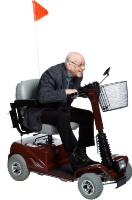Adult sleep disorders causing sleep deprivation health problems
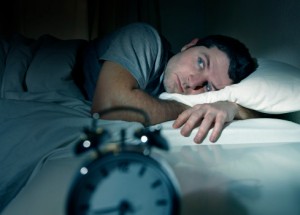 Sleep is the foundation of many major bodily functions, unfortunately, common sleep disorders in adults are a problem that many people experience. Poor sleep can greatly impact our overall health and quality of life, and so knowing the root cause of what’s keeping you awake at night is important.
Sleep is the foundation of many major bodily functions, unfortunately, common sleep disorders in adults are a problem that many people experience. Poor sleep can greatly impact our overall health and quality of life, and so knowing the root cause of what’s keeping you awake at night is important.
There’s a wide variety of sleep disorders which can impede on your health. Some are more easily treatable than others, and some can have a serious impact on other aspects of your health.
The Centers for Disease Control and Prevention (CDC) reports that sleep deprivation is on the rise. The primary outcome of sleep disorders is lack of sleep or sleep deprivation. Sleep deprivation has been linked to many chronic illnesses such as hypertension, diabetes and a reduction in motor skills. As you can see, getting in enough sleep is highly important.
If you’re finally fed up with not getting enough hours of sleep each night, here are some of the common sleep disorders in adults.
Effects of sleep deprivation due to sleep disorders
Besides having low energy and feeling groggy, sleep deprivation has many other negative effects on your health. This is your body on lack of sleep:
 Impaired brain activity
Impaired brain activity- Increase in moodiness
- Hallucinations
- Depression
- Weakened immune system and response
- Memory problems
- Diabetes
- High blood pressure
- Heart disease
- Weight gain
- Lack of energy
- More prone to accidents
- Decrease in motor skills
- Decrease in concentration and focus
Sleep is your body’s way of restoring itself, organizing memories and managing stress hormones. Without the nightly recharge, all major bodily functions become impaired, leading to chronic illness.
List of common sleep disorders in adults
Many factors come into play that can prevent sleep. From stress to nightmares, the range is quite broad. Common sleep disorders in adults include:
- 1. Insomnia
- 2. Sleep apnea
- 3. Narcolepsy
- 4. Sleepwalking
- 5. Night terrors
- 6. REM sleep behavior disorder
We will further explore these common sleep disorders, so you can have a better understanding of what may be the root cause of your sleep deprivation.
- 1. Insomnia
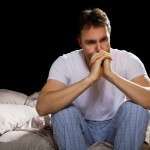 Insomnia is the inability to receive a good night’s sleep. You may have trouble falling asleep or even staying asleep as the night goes on. There are different types of insomnia which can be temporary, short-term or long-term, depending on the cause.
Insomnia is the inability to receive a good night’s sleep. You may have trouble falling asleep or even staying asleep as the night goes on. There are different types of insomnia which can be temporary, short-term or long-term, depending on the cause.
Temporary insomnia may be brought on by sleep schedule changes like traveling, anxiety about things going on in your life or an increase in noise. Short-term insomnia may last for a few weeks and may go away and come back. Once again, changes in mental and emotional state can bring upon short-term insomnia.
Long-term insomnia is referred to as chronic insomnia and is when the insomnia occurs at least three times a week for a month or longer. Long-term insomnia may be brought on by illness, medications like diuretics, age (people over 65 are more prone to chronic insomnia), stimulants like caffeine and life changes.
As mentioned, symptoms of insomnia are: difficulties falling asleep, trouble staying asleep or waking up quite early and not being able to fall back asleep. This can lead to feeling irritable, tired and having a lack of concentration.
A way to prevent insomnia is to identify its cause. What are your life stresses? Has your routine changed? What medications are you taking? Answering these questions can better lead to insomnia treatment and prevention. Whether you need to find stress-coping mechanisms or seek out alternative medications, you first need to find the root of your insomnia.
Related Reading: Trouble sleeping? Best methods to deal with insomnia
- 2. Sleep apnea
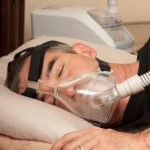 Sleep apnea comes in three forms: Obstructive sleep apnea, central sleep apnea and complex sleep apnea. Obstructive sleep apnea refers to the muscles in the throat relaxing and therefore blocking air to and from your lungs. The person stops breathing which depletes the amount of oxygen to the brain. They are jolted awake again when the brain sends signals to breathe. This can cause them to wake up several times a night, which leads to fatigue the next day.
Sleep apnea comes in three forms: Obstructive sleep apnea, central sleep apnea and complex sleep apnea. Obstructive sleep apnea refers to the muscles in the throat relaxing and therefore blocking air to and from your lungs. The person stops breathing which depletes the amount of oxygen to the brain. They are jolted awake again when the brain sends signals to breathe. This can cause them to wake up several times a night, which leads to fatigue the next day.
Severity of sleep apnea can be mild, moderate or quite serious. This depends on how long the person stops breathing for and how often.
Symptoms of sleep apnea include snoring, being sleepy, lack of concentration throughout the day and waking up unrefreshed. Your partner’s quality of sleep may also be affected because of the snoring.
Sleep apnea requires treatment; it will not just go away on its own. Common treatment options are losing weight – if someone is overweight – or using a continuous positive airway pressure machine (CPAP) to help the person breathe at night.
Obstructive sleep apnea can lead to hypertension, heart disease and stroke, so managing it is vital.
Must Read: Obstructive sleep apnea can cause brain damage: Study
- 3. Narcolepsy
 As a common sleep disorder, narcolepsy controls the effects of sleep and wakefulness. Our sleep goes through cycles which move from light sleep to deep sleep – or rapid eye movement (REM). In people with narcolepsy, their bodies skip the cycle and go straight to REM sleep and this may also occur during the day as well.
As a common sleep disorder, narcolepsy controls the effects of sleep and wakefulness. Our sleep goes through cycles which move from light sleep to deep sleep – or rapid eye movement (REM). In people with narcolepsy, their bodies skip the cycle and go straight to REM sleep and this may also occur during the day as well.
The exact cause of narcolepsy is still unknown, but a gene may be responsible for this common sleep disorder. Symptoms of narcolepsy are excessive daytime sleepiness (EDS), loss of muscle tone and weakness, hallucinations and temporary sleep paralysis.
The American Sleep Association estimates between 125,000 to 200,000 Americans suffer from narcolepsy, but with so many undiagnosed causes, it’s hard to pinpoint its prevalence.
Related Reading: Narcolepsy: Signs and symptoms
- 4. Sleepwalking
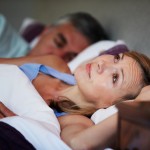 The name says it all; sleepwalking involves walking or performing physical activity while asleep. Most commonly found in children, sleepwalking can affect anyone at any age. It can be brought on by anxiety, medications, medical issues and mental disorders.
The name says it all; sleepwalking involves walking or performing physical activity while asleep. Most commonly found in children, sleepwalking can affect anyone at any age. It can be brought on by anxiety, medications, medical issues and mental disorders.
Those suffering from this common sleep disorder may appear awake and perform functions as if they are awake but are actually in deep sleep. You may have heard to not awaken someone who is sleepwalking, but it is perfectly safe to do so.
Managing and preventing sleepwalking is about figuring out what is causing it. Treating anxiety, medical issues and recognizing medications is the best way to prevent more episodes of sleep walking.
Related Reading: Stanford: What ‘waking up confused’ means
- 5. Night terrors
 Night terrors, considered a childhood occurrence, can still be a common sleep disorder in adults. Stressful life events, fever, sleep deprivation and medications for the nervous system may all lead to night terrors.
Night terrors, considered a childhood occurrence, can still be a common sleep disorder in adults. Stressful life events, fever, sleep deprivation and medications for the nervous system may all lead to night terrors.
Night terrors occur during the transitions between sleep cycles. Night terrors are frightening and may result in yelling and tears from the individual. Increase in heart rate, breathing and sweat may also accompany night terrors. It may be difficult to calm a person down when they are experiencing a night terror, and they may appear as if they cannot see or hear you.
People may grow out of night terrors, but if a fear of falling asleep develops, medical intervention may be required.
Related Reading: What Cheese Does for Your Nightmares
- 6. REM sleep behavior disorder
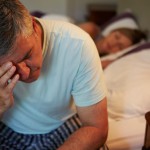 We’ve discussed REM and recognize that it’s part of the deep sleep cycle. This is the part of the cycle where you dream. Typically, dreaming occurs in the mind, but with REM sleep behavior disorder the individual physically acts out the dream. This may appear like sleepwalking and night terrors combined.
We’ve discussed REM and recognize that it’s part of the deep sleep cycle. This is the part of the cycle where you dream. Typically, dreaming occurs in the mind, but with REM sleep behavior disorder the individual physically acts out the dream. This may appear like sleepwalking and night terrors combined.
Without the muscle paralysis which occurs during REM, these individuals are able to move and speak, allowing them to act out their dreams. This can be disruptive not only for the individual, but for their partner or family as well. Because people can have a variety of dreams, people with REM sleep behavior disorder may act out violent scenes, putting themselves and their family at risk for injury.
REM sleep behavior disorder may seem frightening and overwhelming, but it can be easily treated.
Related Reading: Rapid eye movement (REM) sleep behavior disorder: Facts and symptoms
Other sleep disorders
Although we’ve listed the common sleep disorders in adults, there are a few other notable common sleep disorders worth mentioning:
Jet lag: Jet lag is the effect of travel, especially when the time zones change. When flying to other countries or time zones, you’re stuck in a plane, sitting uncomfortably with poor air quality. These can all contribute to the effects of jet lag. Jet lag is temporary; how many time zones you cross will determine how many days it will take to recover. For example, one time zone change means one day to recover and adjust.
Snoring: Although snoring is a symptom of sleep apnea, it can occur on its own as well. Alcohol consumption, sleeping on your back and being overweight may contribute to snoring. As long as the snoring does not lead to the stoppage of breathing, then it will really only keep your partner up more than you.
Restless leg syndrome (RLS): RLS is the feeling of movement or sensations within the leg as you sleep. It can be quite bothersome and keep the individual awake. You may experience an overwhelming feeling to move your legs, so you’re not getting proper sleep. For those over 50, RLS may become a daily occurrence, so speaking with your doctor can help you find the right treatment.
Getting back to proper sleep
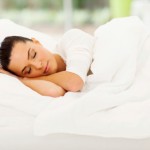 Now that we have identified common sleep disorders in adults, you have a better idea of what may be keeping you up at night. Sleep deprivation holds many detrimental effects on our overall well-being, so if you’re looking for better health, start with getting better sleep.
Now that we have identified common sleep disorders in adults, you have a better idea of what may be keeping you up at night. Sleep deprivation holds many detrimental effects on our overall well-being, so if you’re looking for better health, start with getting better sleep.
By recognizing the underlying cause of your sleep deprivation, you can begin to feel refreshed and ready to take on the day once again.
A few other tips for a good night’s rest include turning technology off before bed, not drinking or using any stimulants prior to sleep, and finding effective means to cope with stress. These three tips should help you create a mindset to promote a better night’s rest.
For further sleep resources, these articles can help you get the sleep you deserve.
14 highly effective food choices to get a good night’s sleep
How’d you sleep last night? Like a baby or as if your mattress was a bed of nails? Was the tossing and turning too much and did you wake up feeling exhausted? If you’re having trouble sleeping, you could be harming your health. You see, sleep is necessary and if you think pulling all-nighters or skimping out on sleep is OK, think it through a bit more.
Natural remedies that will help you sleep better
Tossing and turning through the night can leave you grumpy and on edge the next day. And bouts of insomnia, when you’re wide awake for hours at a time when your body by rights should be sleeping, can take their toll.
-
Quick Fat Burning Ideas that Work!
Everybody desires that rapidly fat burning remedy, the one where you d
-
Calotren: Take It the Right Way to Lose Weight
Calotren helps lose weight in a natural
-
High-fat diet causes damage in the brain
Eating a high-fat diet prompts our brain’s immune cells to star
-
Reduce And Lose Your Weight With Fats
REDUCE YOUR WEIGHTNow you are not very far from losing your excess fat
-
Realistic Weight Loss Goals: How To BE Successful In Weight Loss
Everyone needs goals but very few people know how to create and track
-
How To Choose The Best Weight Loss Program For You
With all of the weight loss programs tha
- DON'T MISS
- A Slimming Program That Works
- Tell Me Do You Really Like Being Fat
- Fast Food Fantasy Comes True: 30 Healthiest Fast Food Choices
- Why We Gain Weight And How To Lose It
- The Skinny on Losing Weight with Green Coffee Beans
- Are You Ready For Low Carb
- Losing Weight with Powerful Herbal Solutions
- Tips for Weight Loss
- Weight Loss Motivation I CAN DO IT
- The 9 Best Healthy Christmas Gift Ideas


